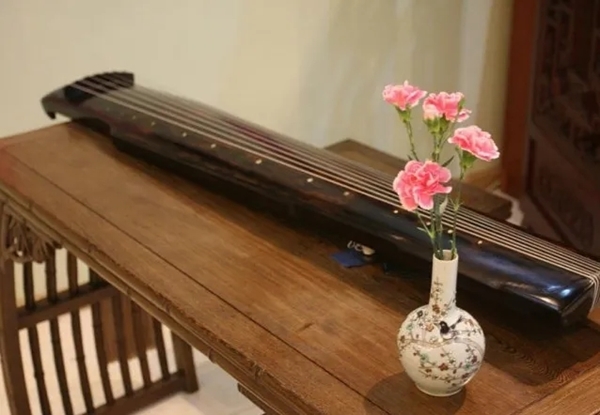How to capture and reproduce the profound "ancient taste" in Guqin performance
Guqin, as one of the oldest plucked instruments in China, the beauty of its rhyme lies not only in the pleasant tone, but also in whether it can pop out the kind of "ancient flavor" that has traversed thousands of years. In the process of playing guqin, how to reproduce the ancient and simple charm full of historical accumulation and cultural connotation is the goal pursued by every student. The following points can help us better understand and practice how to pop "ancient flavor" in guqin performance.

1. Rigorous and simple techniques
The "ancient flavor" of Guqin is first reflected in its unique playing techniques. Each fingering method in the reduction of characters, such as "hook, pick, erase, pick, hit, pick", etc., carries the wisdom and emotion of the ancients. Accurately mastering these traditional fingerings, especially imitating the special skills described in ancient music, such as singing 猱, moving up and down, can outline simple and delicate lines between notes, restoring the soul of Guqin music.
2. Grasp and create artistic conception
The essence of Guqin music is to convey the mood and philosophy of the literati. When playing, it is necessary to deeply understand the allusions behind the repertoire and the artistic conception of the poetry, integrate their emotions into the music, and create a quiet, profound, vigorous and primitive atmosphere through the delicate handling of the rhythm, strength and urgency, so that the listener can feel a strong sense of history.
3. Refinement and application of timbre
The "ancient taste" of the sound of the guqin comes from the texture brought by its natural material and exquisite craftsmanship. When playing, we should pay attention to adjusting the strength and elasticity of the wrist and arm, and feel the vibration of each string and each badge with our hearts. Through subtle changes in the touch of the string, the sound of the piano is pure and thick, the stability of the metal, and the flexibility of the silk string, creating a sound quality that has the traces of time and vitality.
4. Humanistic cultivation and inner cultivation
Guqin has always been regarded as a tool for literati to cultivate themselves. The cultural cultivation and inner cultivation of the players are crucial to the performance of Guqin music. Through reading ancient books and learning classical culture, we can improve our own artistic taste and humanistic quality, so as to penetrate deep knowledge and personality charm into the music, which is a higher level pursuit of "ancient taste".
5. Choose music reasonably and inherit classics
The direct way to preserve the "ancient flavor" of guqin is to choose the ancient music with deep historical origin and cultural background for study and performance. From "High Mountain and Flowing Water" to "Three lanes of Plum Blossom", from "Wine mania" to "Yangguan Sanjie", these classic songs contain the sorrow and joy of the ancients, the thoughts of the country and the country, they are themselves the best carrier of "ancient taste".
To sum up, if you want to really pop out the "ancient flavor" when playing the guqin, you not only need skilled skills and accurate interpretation of the ancient music, but also need a deep understanding of the ancient cultural spirit, a careful grasp of the artistic conception of music and the continuous improvement of their own internal humanistic quality. Only in this way can the sound of guqin travel through time and space, radiating the eternal "ancient taste".
 渝公网安备 50010702504639号
渝公网安备 50010702504639号